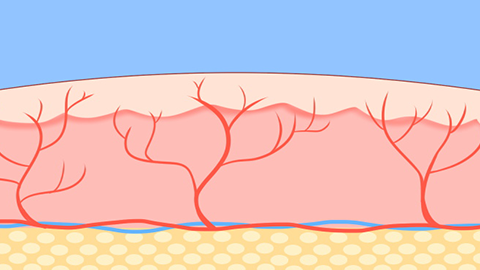Is capillary dilation a serious condition?
Generally speaking, whether telangiectasia is serious depends on the severity of the condition, symptom presentation, and whether it is accompanied by other diseases. If discomfort occurs, timely medical consultation is recommended. Detailed analysis is as follows:

If telangiectasia is mild, with only a small number of superficial red blood vessels appearing locally on the skin, without symptoms such as itching, pain, or burning sensation, and without underlying diseases such as cirrhosis or connective tissue disease, it is generally relatively benign. This condition mainly affects appearance without causing significant harm to health. Skin stability can usually be maintained through routine skincare, without excessive concern.
If telangiectasia is severe, with numerous and widely distributed red blood vessels, accompanied by significant skin sensitivity, damage, or infection, or associated with systemic diseases such as liver or cardiovascular disease, it requires attention. Underlying diseases may continuously worsen the vascular dilation and may also trigger other health problems. If not treated promptly, it may affect bodily functions and cause adverse health effects, thus requiring active identification and management of the underlying cause.
After detecting telangiectasia, monitoring symptom changes and any accompanying discomfort is important. Regular physical check-ups should be conducted to screen for underlying diseases. Daily skin protection measures should be taken, such as avoiding sun exposure and temperature fluctuations, and selecting gentle skincare products. If the condition worsens or symptoms related to underlying diseases appear, timely medical consultation is necessary to identify the cause and receive appropriate treatment to avoid delaying the condition.





